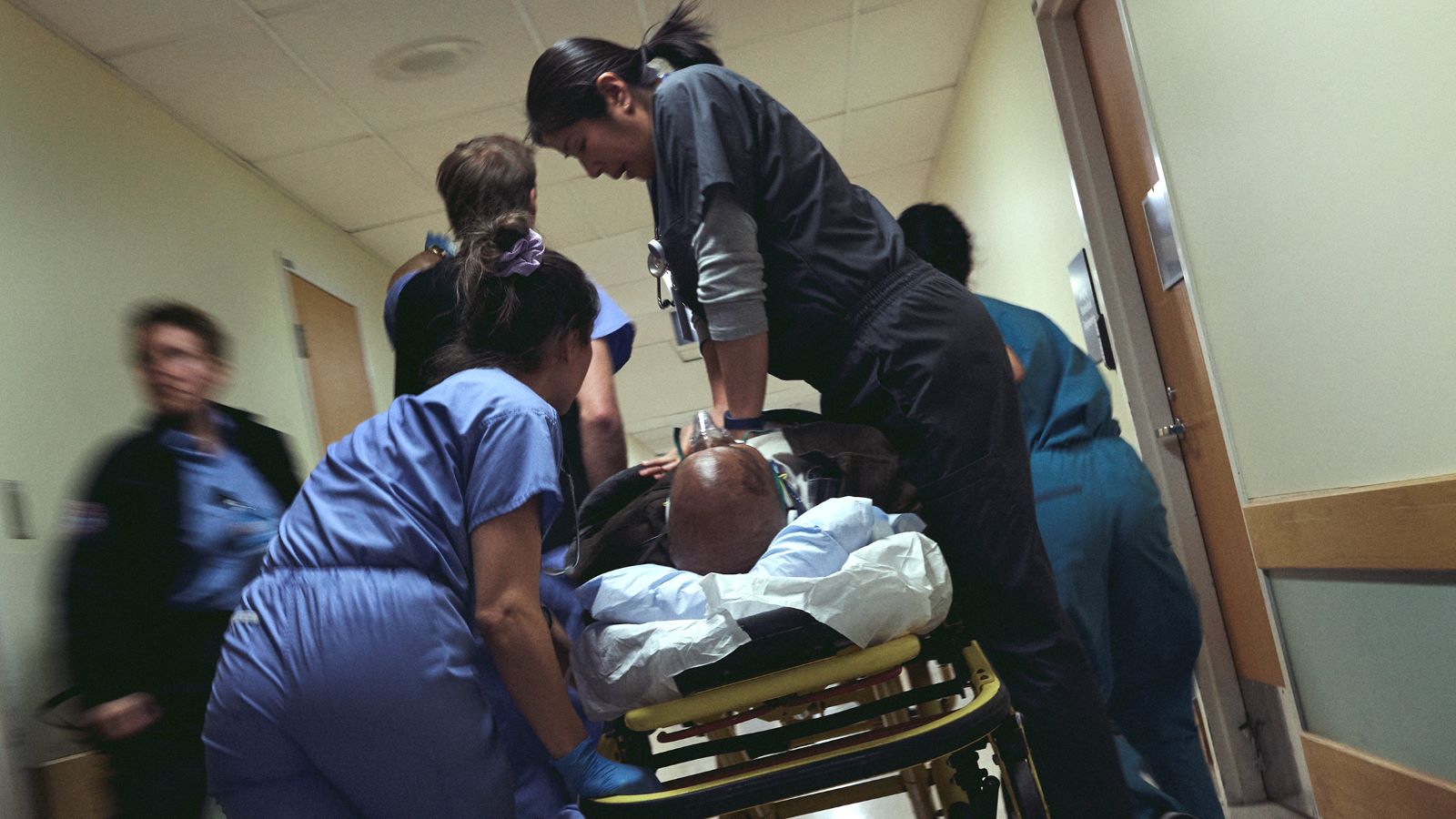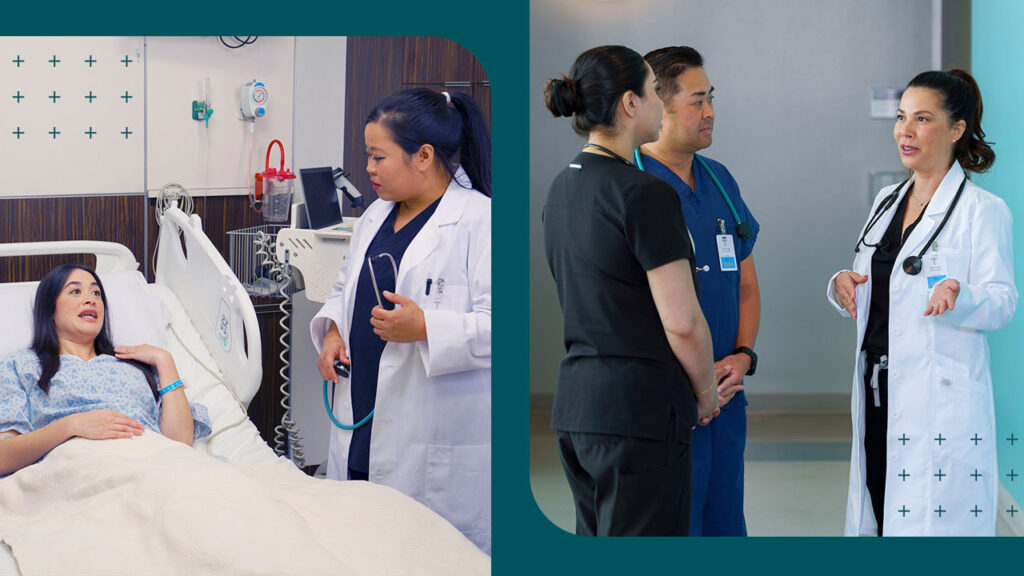In nursing, we hear the word “care” a lot.
It’s the language we use to describe the profession. But what does it mean?
For nurses, care isn’t just that soft, fuzzy feeling of a hand on your shoulder or a kind word. It’s more than that. It’s the courage and grit to care when things get hard. It’s the stamina to keep caring when the odds are long. It’s the fortitude to make decisions and act when life hangs in the balance.
It takes a certain kind of person to do this work — and that’s because caring is a calling.
It’s caring when your shift feels endless… when the ward is over capacity… when your patient takes their fear out on you… when the prognosis is bad. Nurses are leaders, teachers, and caregivers who act in the moment for the benefit of others. They show up and they keep up.
Let’s dispel the myth of nursing as a profession of the nurturer and embrace the nurse warrior, who cares deeply in the fight for life. Let’s take a moment to appreciate what the profession of nursing entails and why nurses are essential to the health and well-being of our society at large.
Healthcare Isn’t a System — It’s a Collective
Those of us inside the healthcare “system” know that it’s a misnomer. “System” is a reductive term for something that is much more than that. Care comes from the people, not the system, and the people of healthcare are stronger, wiser, and more dedicated than their organizational infrastructure.
Healthcare is a team sport — a collaborative effort dedicated to the relentless pursuit of health and life. It’s check-you-chart, check-your-morale, check-on-your-teammates work where the sum is greater than its parts. Nurses work in lockstep with each other and with the entirety of a healthcare facility’s personnel to save lives.
Each patient participates in their own health, too, and the connective tissue between a patient and their treatment is often their nurse. After all, nurses make up the largest component of the healthcare workforce, and they’re the primary providers of patient care in hospitals, according to the American Association of Colleges of Nursing. Nurses are synapses of communication between patients and their doctors, keeping both sides informed, empowered, and on the right path to health.
Nursing Roles: Touching All Aspects of Life
There’s no overestimating the impact of nurses throughout our lives, including during many milestones. Nurses work with every age population, from neonatal to hospice. They help bring us into the world, and they help ease us out of it. They take our vitals and ask us about our medical histories without judgment. They participate in some of our most critical medical moments. Even when we don’t know them by name, we trust them implicitly.
The settings in which nurses work are as varied as their skill set. Nurses work in hospitals, in homes, in schools, and in prisons.1,2 They can specialize in family medicine, geriatric care, pediatrics, women’s health, and more. They can conduct research, teach in universities, and affect healthcare policy. And all of that is by no means a comprehensive inventory of the nursing purview.
When it comes to care, nurses strike just the right balance between science-based decisions with human compassion. Becoming a nurse means relating to a patient in more ways, perhaps, than any other profession.
An Education That Lays the Foundation for Quality Care
To say a nursing education is a well-rounded education is a gross understatement. Nurses at the undergraduate level study general education topics as well as a series of demanding subjects that require a high level of versatility. (To get a sense of their diversity in education, check out WCU’s BSN curriculum.)
Nurses who pursue advanced degrees face additional rigor, and those who pursue the highest levels of education and specialties must develop fluency in complex disciplines.
Nursing school at all levels is for students with an appetite for challenge. It’s an education that is equal parts academic and hands-on learning, and it trains both your intellectual and muscle memories for work that requires all-in commitment. This is not a desk job, and even when you are doing paperwork, the stakes remain high.
As a nursing student, you’ll study the sciences and fundamentals specific to nursing, but you will also learn about communication, public health, research, mental health, family and community dynamics, and more.
You’ll do homework and lab work. You’ll participate in simulations and clinical experiences. You’ll graduate with knowledge and skills you’ll need to make a difference for those who will need you.
West Coast University’s Devotion to Future Nurses
At WCU, we are continuously inspired by the nurses of tomorrow that we see in our classrooms today. We’re invested in each and every student’s success, from the first day of their program until well beyond graduation.
We’re focused on our students getting to where they need to go to create the impact they want to in the world. At WCU, that means giving you a quality education and helping you achieve your goals to embark on the exciting, intense, challenging, and deeply rewarding work of a nurse.
Getting Started on Your Nursing Education Journey
Whether you’re ready to start working toward your goal of becoming a nurse or you want to build on your skill set as an existing nurse, we have the curriculum and learning resources you need. Explore our online and campus nursing programs, or fill out the form on this page to request more information.
We want to help you achieve your goals so you can make a bigger impact!
Citations:
1 Bureau of Labor Statistics, U.S. Department of Labor, Occupational Outlook Handbook, Registered Nurses, “Work Environment,” Updated Sept. 8, 2022
2 International Association of Forensic Nurses, “Correctional Nursing,” Accessed April 27, 2023
WCU provides career guidance and assistance but cannot guarantee employment. The views and opinions expressed are those of the individuals and do not necessarily reflect the beliefs or position of the school or of any instructor or student.



